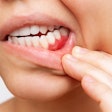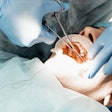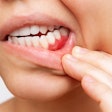
Antibiotics are not recommended for most toothaches for managing urgent dental pain and swelling, according to a new ADA guideline published in the Journal of the American Dental Association. Instead, antibiotics should be reserved for patients with systemic conditions, such as fever, brought on by dental conditions.
A panel convened by the ADA Council on Scientific Affairs and the Center for Evidence-Based Dentistry recommended against using antibiotics in most clinical cases, regardless of the availability of definitive, conservative dental treatments (DCDT).
"The expert panel suggests that antibiotics for target conditions be used only when systemic involvement is present and that immediate DCDT should be prioritized in all cases," wrote the guideline authors, led by Peter Lockhart, DDS, chair of the panel and a research professor at the department of oral medicine at Carolinas Medical Center-Atrium Health in Charlotte, NC (JADA, November 2019, Vol. 150:11, pp. 906-921e.2).
Fighting antibiotic resistance
Antibiotic-resistant bacteria are a major public health threat in the U.S. The Centers for Disease Control and Prevention published a comprehensive report in 2003 that sounded the alarm to the dangers of antibiotic resistance, showing that at least 2 million people get an antibiotic-resistant infection and at least 23,000 people die from these infections each year in the U.S., the authors noted.
Other research has shown that about 80% of prescriptions for prophylactic antibiotics written before dental work are unnecessary. Other evidence suggests that some dental patients who receive antibiotics prior to treatments end up visiting emergency rooms, experience allergic reactions, or get Clostridioides difficile (C. diff) infections.
Healthy adults with a toothache are best served not by antibiotics but by dental treatment and, if needed, over-the-counter pain relievers, such as acetaminophen and ibuprofen, according to the authors.
The guideline aims to assist clinicians and patients in determining the appropriate use of systemic antibiotics for the urgent management of several common dental conditions with or without access to immediate definitive, tooth-preserving dental treatments, such as pulpotomy, pulpectomy, nonsurgical root canal treatment, or incision and drainage.
Clinicians should prescribe antibiotics to healthy adults with pulp necrosis and localized acute apical abscess when dental treatment isn't available. Antibiotics are also recommended for those with this condition and systemic symptoms, including malaise, fever, and swollen lymph glands. Treatment should not be delayed in either case.
However, the panel determined that antibiotics should not be prescribed to healthy adults with symptomatic irreversible pulpitis, whether it is diagnosed with or without symptomatic apical periodontitis. Instead, clinicians should refer patients for dental treatment and provide interim monitoring.
Healthy adults with pulp necrosis and symptomatic apical periodontitis also should not be given antibiotics but referred for dental treatment and monitored. If dental treatment is not possible, a clinician should provide a delayed prescription for antibiotics. Clinicians should provide the prescription and instruct patients to fill it within 24 and 48 hours of the initial visit if dental treatment had not yet been performed or symptoms worsen.
The authors noted that the guideline offers recommendations. Providers, especially those in emergency departments, other healthcare settings, or rural areas, may not find these recommendations acceptable or feasible. In these situations, providers should question whether patients have access to oral healthcare and make treatment decisions accordingly.
"It's vital that we use them wisely so that they continue to be effective when absolutely needed," Dr. Lockhart stated in a press release issued by the ADA.



















